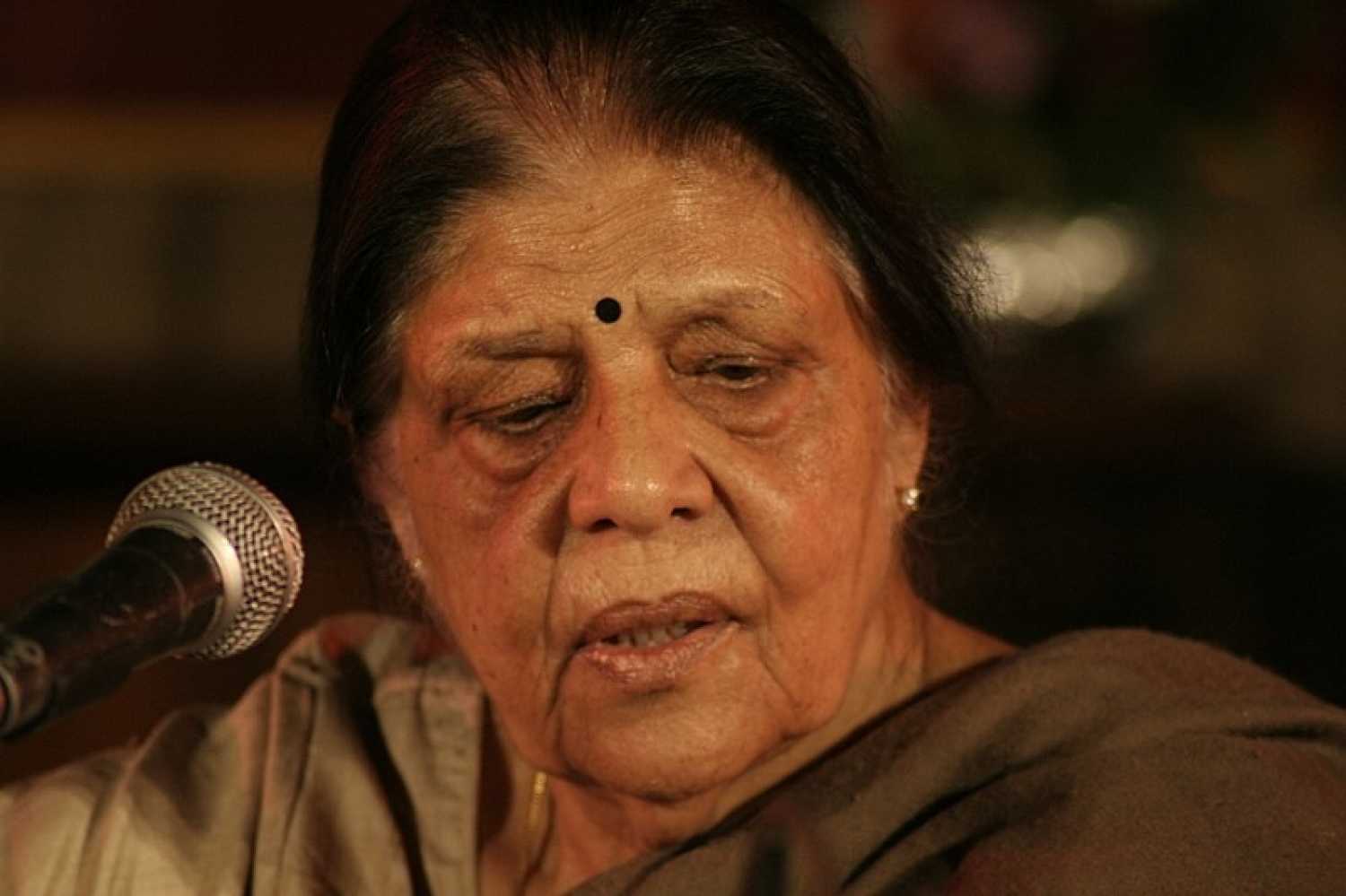Shanti Hiranand, a virtuoso performer in her own right, is best remembered for her devotion to her teacher, whom she called Ammi, and her art.
Classical vocalist Shanti Hiranand, Begum Akhtar's disciple, dies aged 87
New Delhi - 11 Apr 2020 1:43 IST


Sukhpreet Kahlon
Noted classical vocalist and ghazal singer Shanti Hiranand died in Gurugram, Haryana, on Friday morning. She was 87 years old.
A devoted disciple of the ghazal great and renowned classical vocalist Begum Akhtar aka Akhtari Bai Faizabadi, Shanti Hiranand was drawn to music from a young age. Born in a progressive business family in Lucknow in the erstwhile United Provinces, she was encouraged to learn music and began her training at the city's Marris College of Music (now the Bhatkande Music Institute Deemed Univesity).
The family moved to Lahore in the 1940s where Hiranand continued her training and gave her first radio performance on the Lahore station of All India Radio in 1947. The family returned to India after Partition and Hiranand began her training under Ustad Aijaz Hussain Khan and, later, with the great Begum Akhtar in 1957 under whom she learnt the thumri, dadra and ghazal.
Meeting Begum Akhtar and becoming her pupil was a turning point in Shanti Hiranand's life as she dedicated herself wholeheartedly to her guru, whom she fondly called Ammi, meaning Mother. She was one of only two persons whom the virtuoso ever accepted formally as pupils. At a concert just a few months before her death in October 1974, Begum Akhtar remarked, “If you want to hear my music after my death, hear it through Shanti’s singing.”
Hiranand wrote a biography of her guru, Begum Akhtar: The Story of My Ammi. In 2010, her first ever album, Jo Aaj Tak Na Keh Saki, was released, which contained ghazals composed by her. One of the ghazals, ‘Tumhara Aqs Hoon’, which translates as 'I Am Your Reflection', describes her feelings for her Ammi.
Sumesh Sharma, who was associated with Shanti Hiranand during the writing of the Begum Akhtar biography, shared an incident that spoke of the bond between master and disciple. Once, Begum Akhtar was to perform at a concert in Pakistan and her pupil was to accompany her but Shanti Hiranand did not have a passport. An officer from the external affairs ministry came to Begum Akhtar's home to fill up the requisite forms. When the officer asked Hiranand's name, Begum Akhtar promptly said, "Shanti Hiranand Akhtar”, and the passport was made in that name!
When they reached Pakistan and had to produce the documents on arrival, the immigration officer was puzzled by this Hindu-Muslim name. Unfazed, Begum Akhtar commented, “This is very common in our country. Must be unusual for you people."
Sharma said, “Shanti Hiranand kept the legacy and music of Begum Akhtar alive, always seeing herself as an extension of her guru, a part of her heritage, and never as the Shanti Hiranand, though she had every right to.”
Although Shanti Hiranand rarely sang for films, she recorded a song for the Indo-American co-production Siddhartha (1972), directed by Conrad Rooks and based on the eponymous novel by Hermann Hesse, with music by Hemant Kumar. Starring Shashi Kapoor and Simi Garewal, the film is about a young man’s quest for the meaning of life.
In addition to singing for the film, Shanti Hiranand played the role of Kapoor’s mother in Siddhartha. She also sang for Rajan Khosa’s Swara Mandal or Dance Of The Wind (1997), a film about an Indian classical singer which reflects on the master-student tradition in India.
Speaking about her, singer, composer and activist Rene Singh, who had been Hiranand's student for 20 years, said, “She was the epitome of humility and devoted her life to her Ammi. She was so devoted to her that even in all her classes, she would teach and we would sing and then she would talk about Ammi, the times of Lucknow, but in all this she never talked about herself, only about Ammi... Interestingly, she never kept a piece of paper and remembered everything by heart. Even at the age of 87, you only needed to give her a line and she would sing the entire piece.”
Talking about her personal connection with her teacher, Rene Singh said, “She and I had a very spiritual connection and the kalams we sang together were more those with a spiritual theme.
Along with her teaching, it was her persona and humility that made her stand out. She never refused to teach anyone and was very large-hearted but kept a very low profile. She would say to her performers, ‘Taaliyon se khush nahi hona, unko sar pe nahin chadhne dena [Never be elated with applause and let it go to your head], that will be the end of your learning’.”
The recipient of several prestigious awards, Shanti Hiranand remains an inspiration to her students for her devotion to her art and her teacher.


